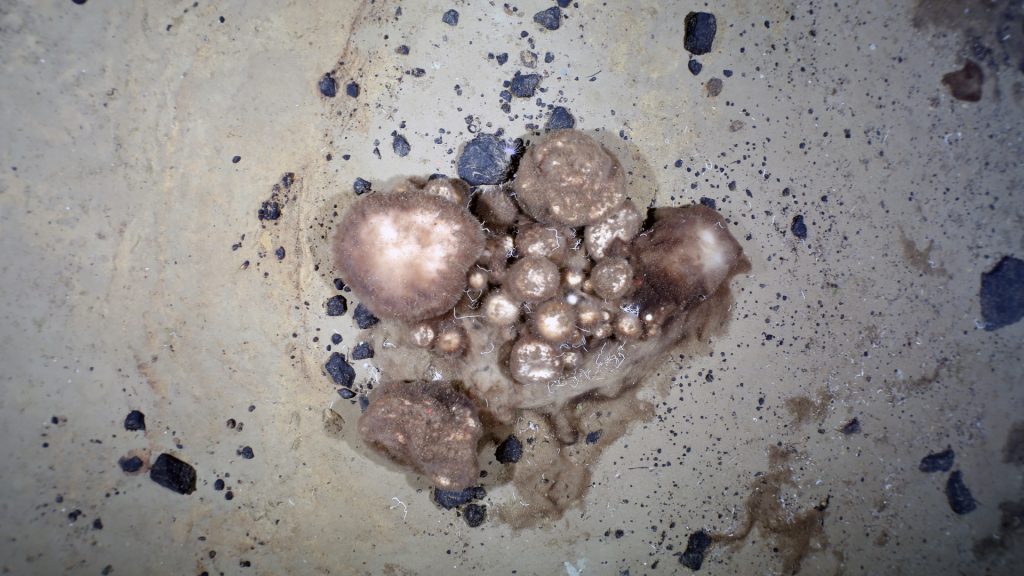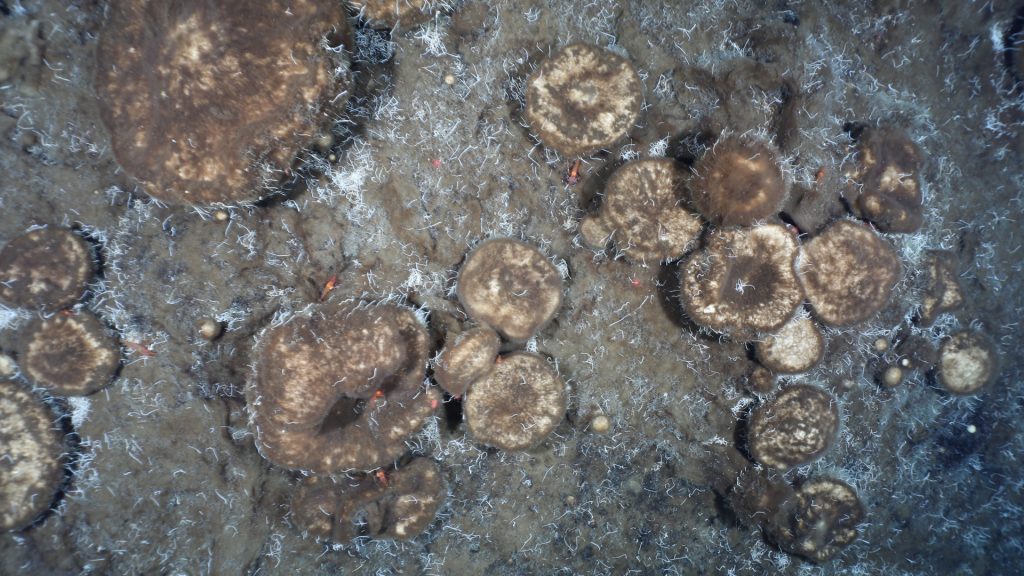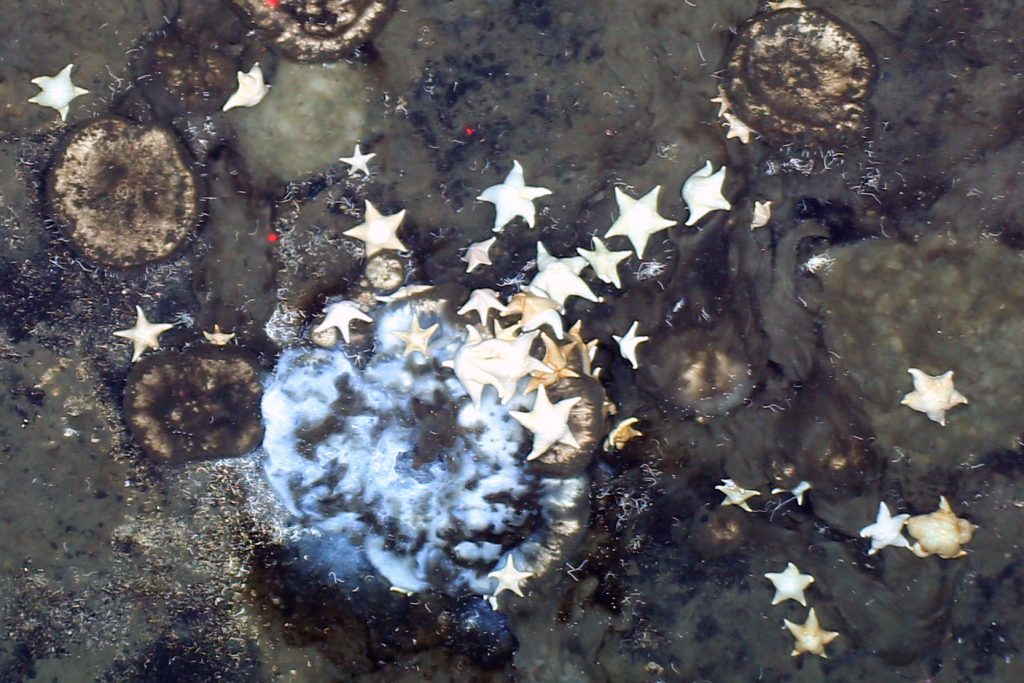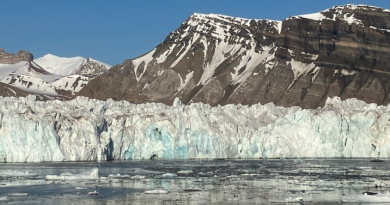Giant sponges feeding on fossils discovered in deep Arctic waters

Deep beneath the ice-covered Arctic Ocean, scientists have made an unusual discovery.
With little to no light, huge sponge gardens appear to survive and even thrive on the remains of extinct fauna.
Found on the tops of extinct underwater volcanoes, these more than 300-year-old sponges seem to share the site with other organisms that contribute to their development.
“Our analysis revealed that the sponges have microbial symbionts that are able to use old organic matter,” explains first-author Teresa Morganti, sponge expert from the Max Planck Institute for Marine Microbiology in Bremen.
“This allows them to feed on the remnants of former, now extinct inhabitants of the seamounts, such as the tubes of worms composed of protein and chitin and other trapped detritus.”
Researchers discovered this unexpected oasis under the ice during an expedition to the region aboard the renowned polar research vessel RV Polarstern between September and October 2016. Their findings were published in the journal Nature Communications.

(Photo: Alfred-Wegener-Institut / PS101 AWI OFOS system)
Feasting on the dead
Considered one of the most basic forms of animal life, sponges are found all over the world, from shallow tropical reefs to the arctic deep-sea.
Scientists have long known that these animals can host a complex community of microorganisms in a symbiotic relationship. But in this case, they wanted to understand what these microorganisms were feeding on.
By analyzing images captured by a towed camera and sonar system, as well as samples collected during the expedition, they discovered that thousands of years ago, substances seeping from the interior of the seabed fed a rich ecosystem, supporting a wide variety of animals.
When they died out, their remnants remained. They now form the basis of this unexpected sponge garden.
“The microbes have the genes to digest refractory particulates and dissolved organic matter and use it as a carbon and nitrogen source, as well as a number of chemical energy sources available there,” explains Ute Hentschel from the GEOMAR Helmholtz Centre for Ocean Research in Kiel, who carried out the microbiological analyses with her team.
In turn, sponges play an architectural role by producing spicules that form a carpet on which they crawl. This can further facilitate local settling of particles and biogenic materials and thus create a food trap.

(Photo: Alfred-Wegener-Institut / PS101 AWI OFOS system)
A unique discovery
What’s really special about this ecosystem is its uniqueness.
“Primary productivity in the overlying water provides less than one percent of the sponges’ carbon demand,” explains Antje Boetius. “Thus, this sponge garden may be a transient ecosystem, but it is rich in species, including soft corals.”
Dr. Ana Riesgo Gil, a specialist in sponges at the British National Museum and who was not involved in this study, said in a press release that “there could be more sites like this to be found”.
“These sponges are pretty well adapted to the deep sea, so I don’t think this feeding is necessarily limited to these individuals and could be extrapolated to other areas where there were formerly seeps.”
This is the first time scientists have discovered similar sponge-like soil in the Arctic. They now stress the importance of further studying this environment in order to better protect “the unique diversity of these Arctic seas under pressure” from climate change.
Related stories from around the North:
Arctic: Arctic Report Card 2021: Sea ice changes, rain on Greenland ice sheet among dramatic changes in North, Eye on the Arctic
Canada: Climate change could mean more wildlife disease in the Arctic, researchers say, CBC News
Finland: Temperatures headed toward -40C in Finnish Lapland, Yle News
Greenland: Blog: Radical Arctic warming – rain, rain, here to stay?, Marc Lanteigne
Russia: Russia’s new North Pole platform soon ready to move into ice, The Independent Barents Observer
Sweden: January temperatures about 10°C above normal in parts of northern Sweden, says weather service, Radio Sweden
United Kingdom: Meet the five experts who just received the British Polar Medal, Eye on the Arctic
United States: Scientists warn of Arctic microbial threats induced by climate change, Eye on the Arctic



